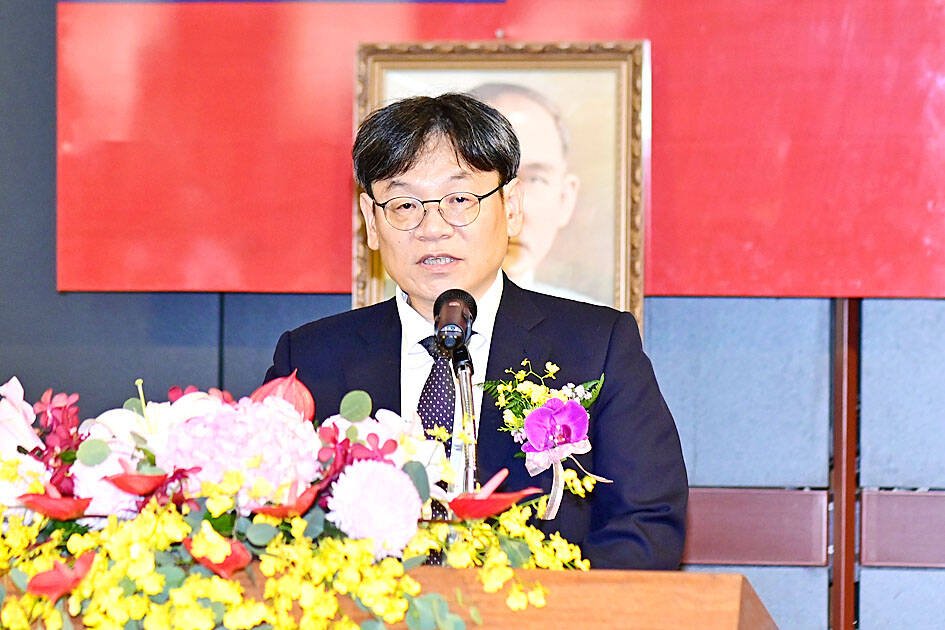AI Research
FDA Final Guidance on Artificial Intelligence Device Modification

As the federal agency tasked with regulating medical devices, the Food and Drug Administration (FDA) regularly releases guidance to inform medical device manufacturers how to best achieve FDA approval. The topics in these documents often reflect the agency’s proactive approach toward emerging issues in the medical device space, including cybersecurity and computational modeling.
On December 4, 2024, the FDA provided initial guidance for Marketing Submission Recommendations for a Predetermined Change Control Plan for Artificial Intelligence-Enabled Device Software Functions. Following public input, the FDA issued its final guidance on August 18, 2025, which addresses a practical issue inherent to AI-enabled device software functions (AI-DSF): AI, by design, may need repeated adjustments for optimal function, which may require manufacturers to separately apply for FDA approval for each change prior to implementation. Thus, the guidance explains how manufacturers can submit and receive FDA approval for a predetermined change control plan (PCCP), a document that discloses the manufacturer’s planned changes to AI-DSF. Because the PCCP is filed with the marketing authorization for a device with an AI-DSF, an approved PCCP can allow a manufacturer to prospectively obtain FDA authorization for both the device and its future modifications. At a high-level, the components of a PCCP are:
- A description of planned modifications to the AI-DSF;
- The protocol for how the modifications will be developed, validated, or implemented, including data management practices, re-training practices, performance evaluation protocols, and update procedures, for each modification; and
- An impact assessment of the modifications regarding the safety and efficacy of the AI-DSF.
Detailed recommendations in the guidance further clarify how manufacturers can create a compliant PCCP and meet other obligations that may be impacted by approved modifications. For example, a PCCP may need to include proposed edits to the AI-DSF’s labeling in conjunction with the proposed modifications and disclose cybersecurity risk management processes in the modification protocol. As federal oversight for AI continues to evolve, manufacturers should take note of this final guidance to streamline both immediate and future legal compliance when integrating AI into medical devices.
AI Research
Minus-AI Launches the Coolest Video Ad Agent for the AI Era

Singapore, Sept. 01, 2025 (GLOBE NEWSWIRE) — Minus-AI: The Coolest AI Video Ad Agent
Minus-AI, a Singapore-based AI-native startup, has officially launched its breakthrough platform that transforms brand information into cinematic, multi-shot video ads in just minutes. Positioned at the intersection of AI marketing, content marketing, AI video ads, and AI video generation, Minus-AI is redefining how businesses of every size create and scale their marketing.
The company proudly states its vision in one bold slogan: “Minus-AI is the coolest AI video ad agent.”
(Frame generated by Minus AI)
A Startup with Momentum
Founded in late 2024, Minus-AI immediately attracted over one million USD in angel investment from renowned figures in the global film and entertainment industry. This rapid validation underscores both the technical depth of the team and the enormous demand for next-generation AI marketing solutions.
Minus-AI’s co-founders bring complementary expertise:
Dr. Luo, who previously served as Senior Principal Scientist at Autodesk Research, brings expertise in reinforcement learning and AI-driven creativity. His collaborations with creatives have been featured at various international venues. With Minus AI, he set out on a mission to build tools that harness the power of AI to enhance creative processes.
Ms. Cai, a graduate of New York University (NYU), was the founder of one of the earliest VR education startups in China, which quickly achieved profitability. With a background bridging creative technology and business execution, she now leads product and commercialization at Minus-AI.
Together, they represent the fusion of advanced AI research and creative entrepreneurship.
The Meaning of “Minus-AI”
As Dr. Luo explains, the name Minus-AI carries a philosophy:
“Minus-AI stands for reducing meaningless labor and leaving time for what truly matters. The dash in Minus-AI is also a minus sign — cutting away the unnecessary.”
This philosophy reflects the company’s mission: to simplify the complexity of content marketing, giving businesses a direct path from idea to finished ad, without wasted effort.
(Minus-AI logo design)
Five Core Advantages of Minus-AI
1. Trendy Ideas, Done for You
Most businesses struggle to keep up with fast-moving social media trends. Minus-AI solves this by embedding hotspots and viral formats directly into its system. From concept to creative format, the platform delivers fresh ideas already tailored to your product and the cultural moment.
AI Research
Clanker! This slur against robots is all over the internet – but is it offensive? | Artificial intelligence (AI)

Name: Clanker.
Age: 20 years old.
Appearance: Everywhere, but mostly on social media.
It sounds a bit insulting. It is, in fact, a slur.
What kind of slur? A slur against robots.
Because they’re metal? While it’s sometimes used to denigrate actual robots – including delivery bots and self-driving cars – it’s increasingly used to insult AI chatbots and platforms such as ChatGPT.
I’m new to this – why would I want to insult AI? For making up information, peddling outright falsehoods, generating “slop” (lame or obviously fake content) or simply not being human enough.
Does the AI care that you’re insulting it? That’s a complex and hotly debated philosophical question, to which the answer is “no”.
Then why bother? People are taking out their frustrations on a technology that is becoming pervasive, intrusive and may well threaten their future employment.
Clankers, coming over here, taking our jobs! That’s the idea.
Where did this slur originate? First used to refer pejoratively to battle androids in a Star Wars game in 2005, clanker was later popularised in the Clone Wars TV series. From there, it progressed to Reddit, memes and TikTok.
And is it really the best we can do, insult-wise? Popular culture has spawned other anti-robot slurs – there’s “toaster” from Battlestar Galactica, and “skin-job” from Blade Runner – but “clanker” seems to have won out for now.
It seems like a stupid waste of time, but I guess it’s harmless enough. You say that, but many suggest using “clanker” could help to normalise actual bigotry.
Oh, come on now. Popular memes and spoof videos tend to treat “clanker” as being directly analogous to a racial slur – suggesting a future where we all harass robots as if they were an oppressed minority.
So what? They’re just clankers. “Naturally, when we trend in that direction, it does play into those tropes of how people have treated marginalised communities before,” says linguist Adam Aleksic.
I’m not anti-robot; I just wouldn’t want my daughter to marry one. Can you hear how that sounds?
I have a feeling we’re going to be very embarrassed about all this in 10 years. Probably. Some people argue that, by insulting AI, we’re crediting it with a level of humanity it doesn’t warrant.
That would certainly be my assessment. However, the “Roko’s basilisk” thought experiment posits that a future artificial superintelligence might punish all those who failed to help it flourish in the first place.
I guess calling it a clanker would count. We may end up apologising to our robot overlords for past hate crimes.
Or perhaps they’ll see the funny side of all this? Assuming the clankers develop a sense of humour some day.
Do say: “The impulse to coin this slur says more about our anxieties than it does about the technology itself.”
Don’t say: “Some of my best friends are clankers.”
AI Research
AI key to Taiwan’s new economy, new NDC head says

Newly appointed National Development Council (NDC) Minister Yeh Chun-hsien (葉俊顯) yesterday said that he would work to advance Taiwan’s industrial innovation, and highlighted artificial intelligence (AI) as key to the nation’s new economy.
Yeh, a research fellow at Academia Sinica’s Institute of Economics, yesterday officially took over from Paul Liu (劉鏡清), who resigned for health reasons, at a handover ceremony in Taipei.
Yeh said that he would focus on the overall goals of the National Development Plan (2025-2028), which prioritizes four main policy areas: an innovation-driven economy, balanced development across Taiwan, improved governance and talent investment.
Photo: Wang Yi-sung, Taipei Times
The council would also continue to promote the government’s “five trusted industry sectors” — semiconductors, AI, military, security and surveillance, and next-generation communications, he said.
Yeh said he is planning 10 new AI infrastructure initiatives, as AI is central to Taiwan’s new economy.
The council would also continue to promote its NT$10 billion (US$326.5 million) fund to support industrial transformation, he added.
In terms of talent investment, the government would promote the National Talent Competitiveness Program 2.0 to bolster the quality of the nation’s workforce, build international competitiveness for the new generation and create a bilingual-friendly environment to attract global talent to Taiwan, Yeh said.
Implementing national development policies requires the council to play a coordinating role across government agencies and work closely with local governments, he said, adding that no matter how good a policy is, it cannot be truly realized without public understanding and support.
-

 Business3 days ago
Business3 days agoThe Guardian view on Trump and the Fed: independence is no substitute for accountability | Editorial
-
Tools & Platforms3 weeks ago
Building Trust in Military AI Starts with Opening the Black Box – War on the Rocks
-

 Ethics & Policy1 month ago
Ethics & Policy1 month agoSDAIA Supports Saudi Arabia’s Leadership in Shaping Global AI Ethics, Policy, and Research – وكالة الأنباء السعودية
-

 Events & Conferences3 months ago
Events & Conferences3 months agoJourney to 1000 models: Scaling Instagram’s recommendation system
-

 Jobs & Careers2 months ago
Jobs & Careers2 months agoMumbai-based Perplexity Alternative Has 60k+ Users Without Funding
-

 Funding & Business2 months ago
Funding & Business2 months agoKayak and Expedia race to build AI travel agents that turn social posts into itineraries
-

 Education2 months ago
Education2 months agoVEX Robotics launches AI-powered classroom robotics system
-

 Podcasts & Talks2 months ago
Podcasts & Talks2 months agoHappy 4th of July! 🎆 Made with Veo 3 in Gemini
-

 Mergers & Acquisitions2 months ago
Mergers & Acquisitions2 months agoDonald Trump suggests US government review subsidies to Elon Musk’s companies
-

 Podcasts & Talks2 months ago
Podcasts & Talks2 months agoOpenAI 🤝 @teamganassi

